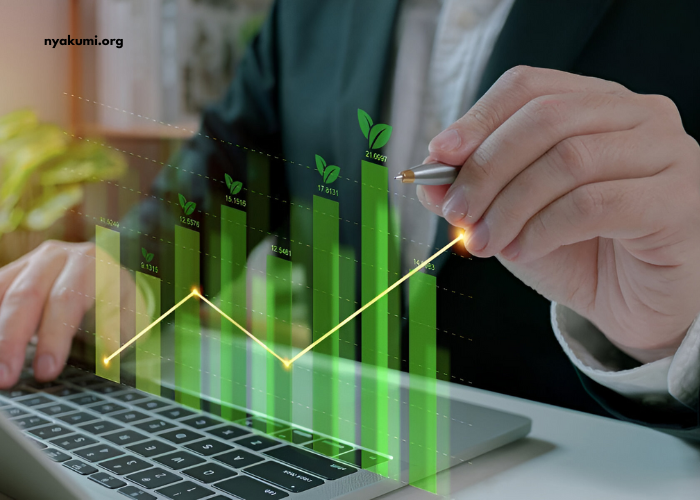In today’s fast-evolving business landscape, sustainability has emerged as a key driver of profitability and competitive advantage. No longer seen as merely a corporate responsibility or an environmental necessity, sustainable practices now form the backbone of innovative, future-ready organizations. This shift underscores the importance of integrating environmentally and socially responsible practices into the core business strategy.
In this comprehensive guide, we will explore how sustainable practices can drive profitability, strengthen brand equity, attract customers, and enhance long-term business resilience.
The Interplay Between Sustainability and Profitability
The common misconception that sustainability is a costly endeavor is rapidly fading. Forward-thinking companies are demonstrating that environmentally friendly initiatives can significantly reduce costs, enhance efficiency, and unlock new revenue streams. By aligning sustainability goals with profitability, businesses can reap multifaceted benefits, including improved financial performance, stakeholder trust, and regulatory compliance.
Cost Savings Through Operational Efficiency
Adopting sustainable practices can lead to significant cost reductions. For instance:
- Energy Efficiency: Upgrading to energy-efficient systems such as LED lighting, smart HVAC systems, and renewable energy sources can dramatically lower utility bills.
- Waste Reduction: Implementing waste management systems minimizes landfill contributions and reduces disposal costs.
- Water Conservation: Efficient water usage strategies not only conserve resources but also decrease operational costs.
These steps, while environmentally responsible, have a measurable impact on a company’s bottom line.
Regulatory Advantages and Risk Mitigation
Governments worldwide are introducing stringent environmental regulations. Companies that proactively adopt sustainable practices are better positioned to comply with these regulations, avoiding fines and reputational damage. Additionally, sustainable practices help businesses anticipate and mitigate risks associated with resource scarcity, climate change, and supply chain disruptions.
Building Brand Equity Through Sustainability
Sustainability is not just about cutting costs—it’s a powerful tool for building a strong, recognizable brand. A commitment to ethical and environmentally sound practices can distinguish a company in crowded markets, earning the loyalty and admiration of stakeholders.
Enhanced Customer Loyalty
Modern consumers are increasingly favoring brands that reflect their values. According to recent studies, over 70% of consumers are willing to pay a premium for products that are sustainably sourced. Companies that effectively communicate their sustainability efforts are more likely to attract and retain this growing segment of environmentally conscious buyers.
Employee Engagement and Retention
Employees want to work for organizations that align with their personal values. By promoting a culture of sustainability, businesses can boost employee morale, reduce turnover rates, and position themselves as employers of choice.
Sustainability as a Catalyst for Innovation
Sustainability is a fertile ground for innovation. Companies that prioritize sustainable practices are finding creative ways to reimagine products, redesign processes, and reconfigure supply chains to align with the principles of environmental stewardship.
Product Innovation
- Eco-friendly Products: Businesses are exploring new materials, such as biodegradable plastics and plant-based alternatives, to create products with minimal environmental impact.
- Recycling and Upcycling: Innovative recycling methods can transform waste materials into valuable products, creating new revenue streams.
Process Optimization
Reengineering production processes to minimize waste, water, and energy consumption leads to not only a smaller ecological footprint but also lower production costs.
Supply Chain Transformation
- Local Sourcing: Sourcing materials locally reduces transportation emissions and supports local economies.
- Circular Supply Chains: Businesses are shifting to circular models where products are designed to be reused, refurbished, or recycled, ensuring that resources remain in use for as long as possible.
Leveraging Technology for Sustainable Growth
Advancements in technology are enabling businesses to achieve their sustainability goals with greater precision and efficiency. From big data analytics to artificial intelligence, technology plays a pivotal role in enhancing sustainability efforts.
IoT and Smart Systems
- Energy Monitoring: IoT devices help businesses monitor and optimize energy usage in real-time, reducing waste.
- Predictive Maintenance: Smart systems can predict equipment failures, ensuring timely repairs and minimizing downtime.
Blockchain for Transparency
Blockchain technology enhances supply chain transparency by providing verifiable data on sourcing, production, and distribution, ensuring ethical practices across the board.
Data-Driven Decision Making
Big data analytics enables companies to analyze patterns, forecast trends, and make informed decisions that align with sustainability goals.
Measuring and Communicating Sustainability
To maximize the benefits of sustainable practices, businesses must establish clear metrics to measure progress and communicate their efforts effectively to stakeholders.
Key Performance Indicators (KPIs)
- Carbon Footprint Reduction: Measure emissions reductions achieved through sustainable initiatives.
- Resource Efficiency: Track reductions in water, energy, and material consumption.
- Waste Diversion Rates: Evaluate the percentage of waste diverted from landfills through recycling or reuse.
Transparent Reporting
Publishing sustainability reports builds trust with stakeholders and demonstrates a company’s commitment to environmental and social responsibility. Adhering to global standards, such as the Global Reporting Initiative (GRI), ensures credibility and consistency.
Case Studies: Businesses Thriving Through Sustainability
Patagonia: A Pioneer in Sustainable Business
Outdoor apparel brand Patagonia is a shining example of how sustainability can drive profitability. By focusing on durable, ethically sourced products and repair services, the company has built a loyal customer base and significantly reduced environmental impact.
Unilever: Redefining Corporate Responsibility
Unilever’s Sustainable Living Plan has driven impressive growth by integrating sustainability into every aspect of its operations. The company’s sustainable brands, including Dove and Ben & Jerry’s, are growing twice as fast as others in its portfolio.
IKEA: Circular Economy at Work
IKEA is committed to becoming a circular business by 2030. From sourcing renewable materials to offering furniture recycling programs, the company exemplifies how sustainability can be embedded in business models.
Overcoming Challenges in Implementing Sustainable Practices
Despite its benefits, implementing sustainable practices is not without challenges. Businesses may face obstacles such as high upfront costs, resistance to change, and complexity in measuring outcomes. However, these challenges can be mitigated through strategic planning, employee training, and leveraging external expertise.
Securing Investment
Articulating the long-term financial benefits of sustainability can help secure buy-in from stakeholders and justify initial investments.
Employee Engagement
Educating employees about the importance of sustainability fosters a culture of responsibility and encourages participation in eco-friendly initiatives.
Collaboration and Partnerships
Partnering with organizations, governments, and NGOs can provide resources and knowledge to overcome implementation barriers.
Future Trends in Sustainability
The intersection of sustainability and profitability is set to deepen as new trends and technologies emerge. Businesses that stay ahead of these trends will not only contribute to global sustainability goals but also maintain a competitive edge.
Net-Zero Commitments
More companies are committing to achieving net-zero emissions. This ambitious goal will drive innovation in renewable energy, carbon capture, and energy storage.
Sustainable Financing
Green bonds and sustainability-linked loans are gaining traction, providing businesses with access to capital for eco-friendly projects.
Consumer-Driven Change
As consumers demand greater accountability, companies will need to adopt transparent practices and ethical sourcing to maintain market relevance.
Conclusion: Sustainability as a Strategic Imperative
Sustainability is no longer optional—it is a strategic imperative for businesses aiming to thrive in the modern economy. By adopting sustainable practices, companies can reduce costs, enhance brand loyalty, drive innovation, and secure long-term profitability.
Incorporating sustainability into the core business strategy is not just about meeting today’s challenges; it’s about creating a future where profitability and responsibility go hand in hand. As the business world transitions toward a greener, more ethical paradigm, those who lead the charge will reap the rewards of a more sustainable and prosperous future.
Sustainability is the key to driving profitability while contributing positively to society and the environment. Embrace it, invest in it, and watch your business grow.





